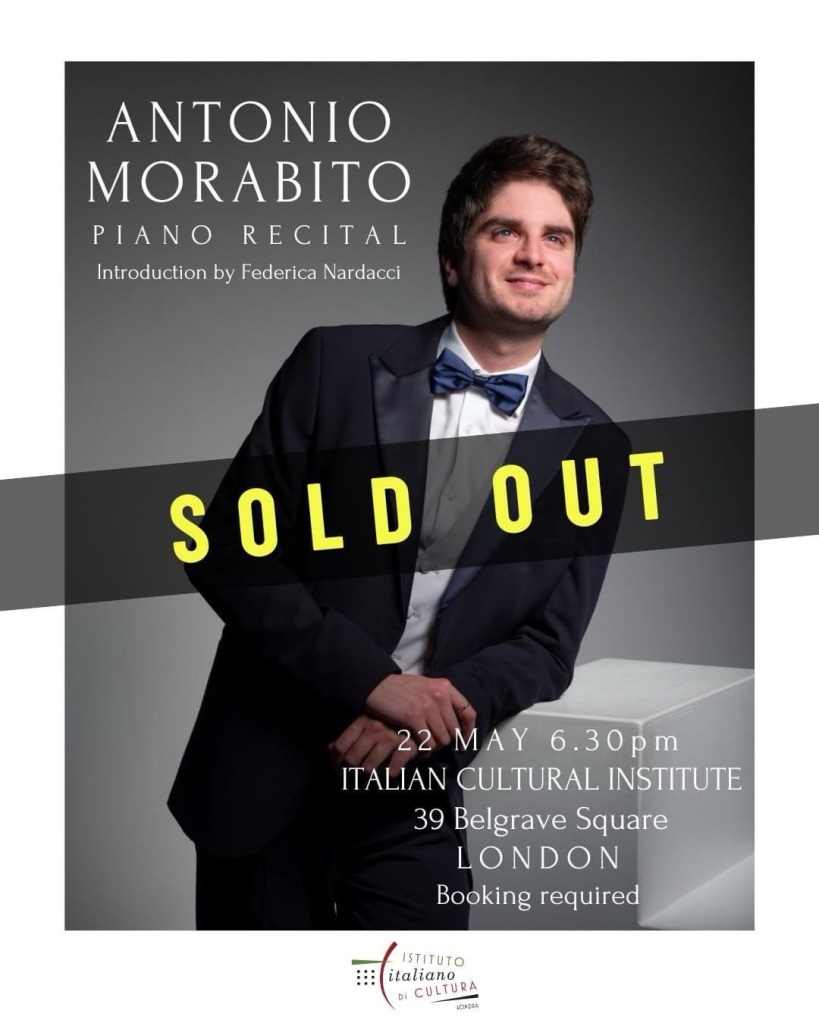
A wonderfully uplifting evening in the Italian Institute with a young Italian pianist coming to London to perfect his studies at the Royal College of Music but arriving in a London struck down by the pandemic .
Now graduated and a fully fledged professional he was able to treat us to a Chopin recital in this beautiful hall overlooking Belgrave Square.A dream come true indeed.
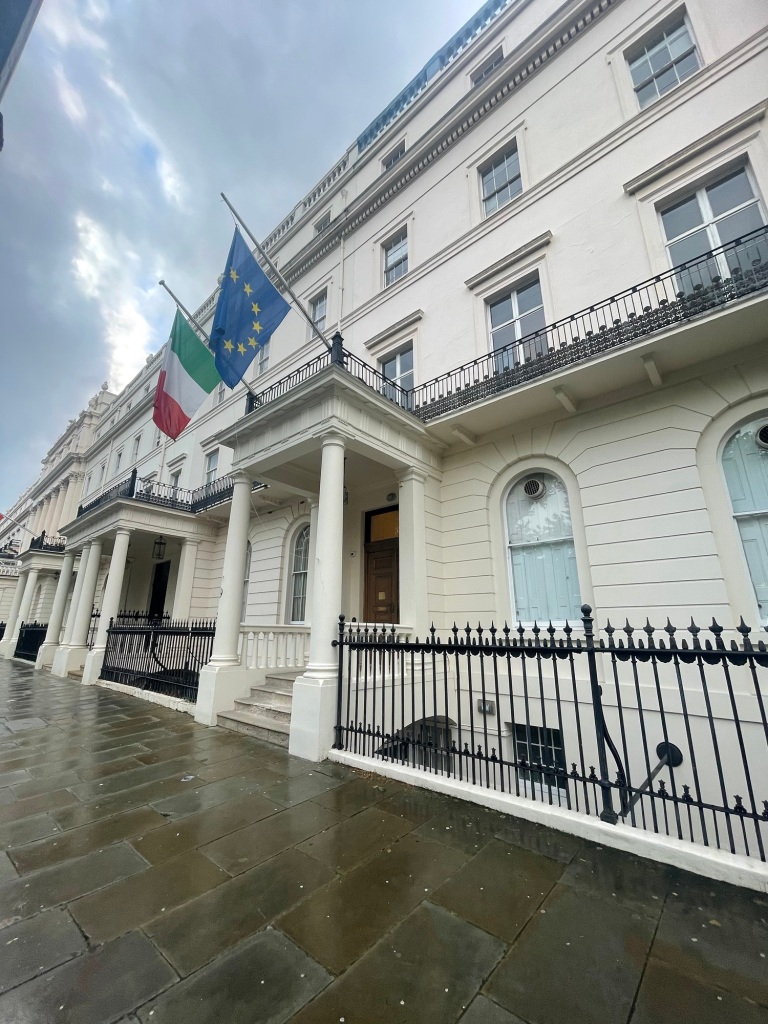
I well remember this beautiful institute when I too as an aspiring student auditioned to have an Italian Government Scholarship to study with Guido Agosti in Rome.How could I forget the fearsome Signora Barzetti, the great critic Andrew Porter or the terrifying Ilona Kabos putting me through my hoops.
Little did I imagine that I would loose my heart to and in Rome and end up spending more than half of my life running a theatre and concert hall in the Eternal City.
Christopher Axworthy Dip.RAM ,ARAM
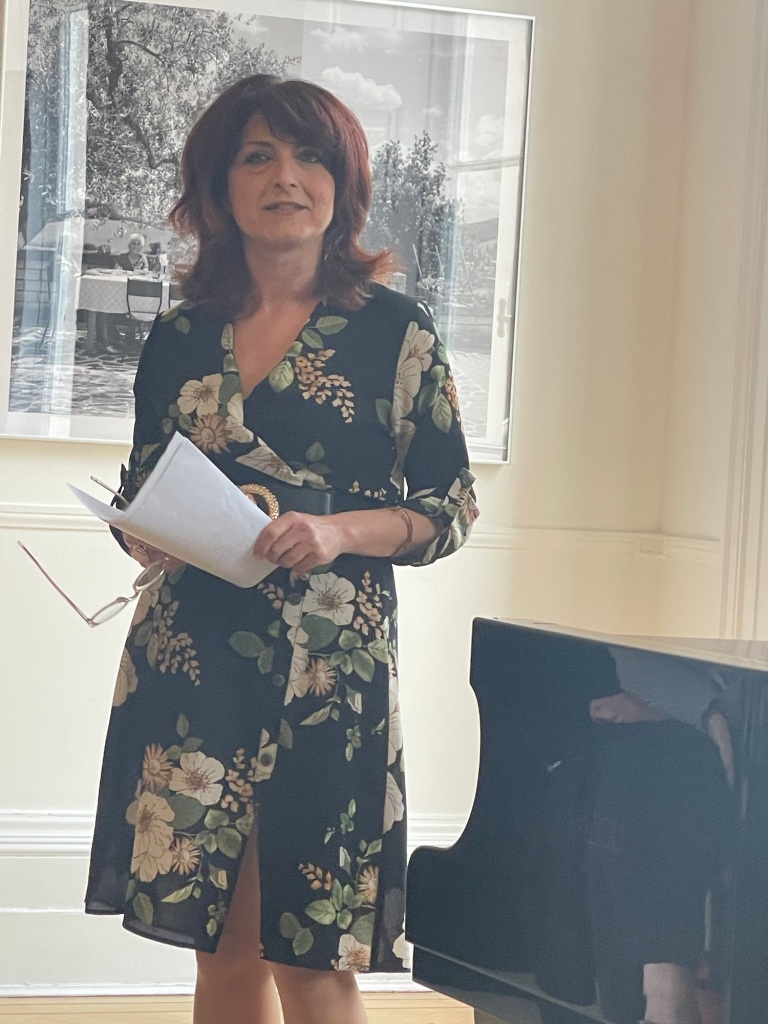
Federica Nardacci now residing in London and an important part of the Royal College of Music was presenting Antonio Morabito’s programme not only in perfect English but describing a fascinating voyage of discovery. She told us of a composer who had never set foot in Italy but was so inspired by the bel canto of Bellini that he brought it’s sublime beauty to an evolving instrument creating a completely new world and technique for his beloved piano
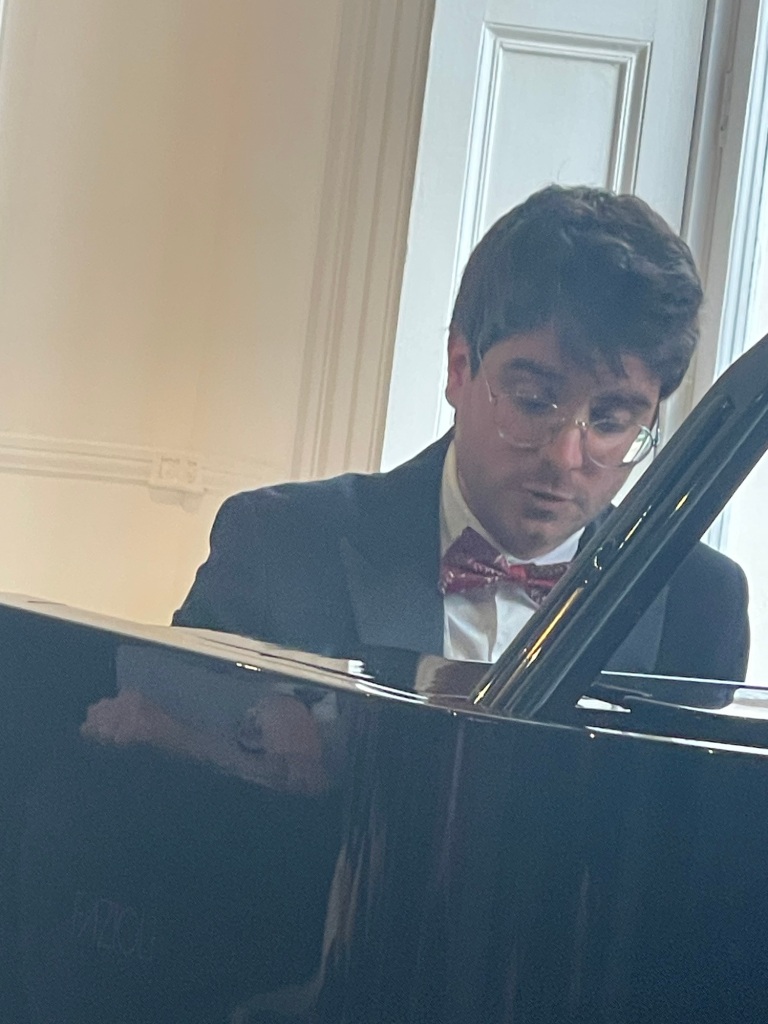
Antonio from Reggio Calabria is now a freelance musician in London and treated us to a sumptuous feast of nocturnes,waltzes ,studies and even the beautiful G flat impromptu and the B flat minor Scherzo.
The nocturne op 55.n.1 in F minor was Cherkassky’s favourite and he would often play it in the many recitals he gave for us in Rome. It opened Antonio’ s programme and created the intimate magic of beauty and nobility that only Chopin can portray in the right hands. Antonio allowed it’s ravishing bel canto to resonate around this beautiful room with refined aristocratic good taste.Helped by the beauty of this very fine Fazioli piano , the filigree web of sounds that unfolded wafted around this salon as we were enveloped in the warmth and subtle rubato that Antonio’s magic fingers could spin.The second nocturne in A flat op 32 n.2 has become well known also via the ballet ‘Les Sylphides’ and it was the orchestral sounds and the passionate outpouring of the central episode that began to ignite the atmosphere at the very opening of this all too short recital.
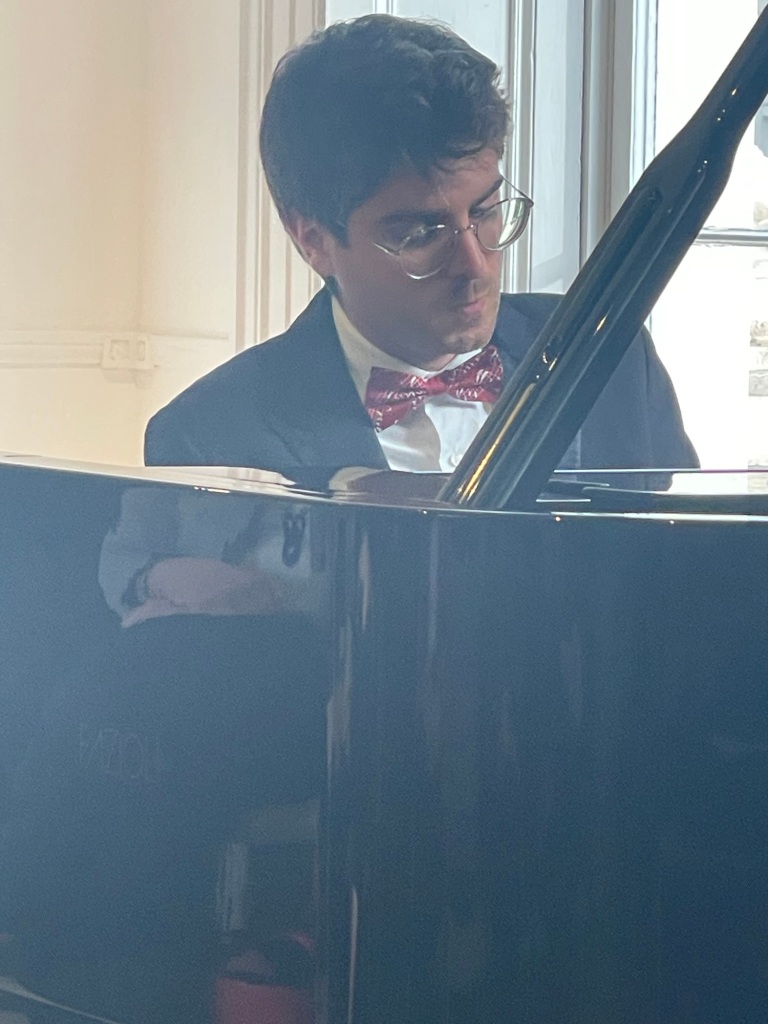
Two early Waltzes op posth in E and op 72.n.3 in D flat were a happy choice because relatively unknown but full of the youthful spirit of the young aspiring virtuoso Chopin. At only 18 had left his homeland never to return as he searched for fame and recognition in the fashionable Paris Salons of that period.Antonio played them with beguiling charm and simplicity and they were a refreshing discovery inbetween the sumptuous G flat Impromptu op 51 and the spectacular Scherzo in B flat minor op 31 that Federica had so eloquently described in her opening introduction.
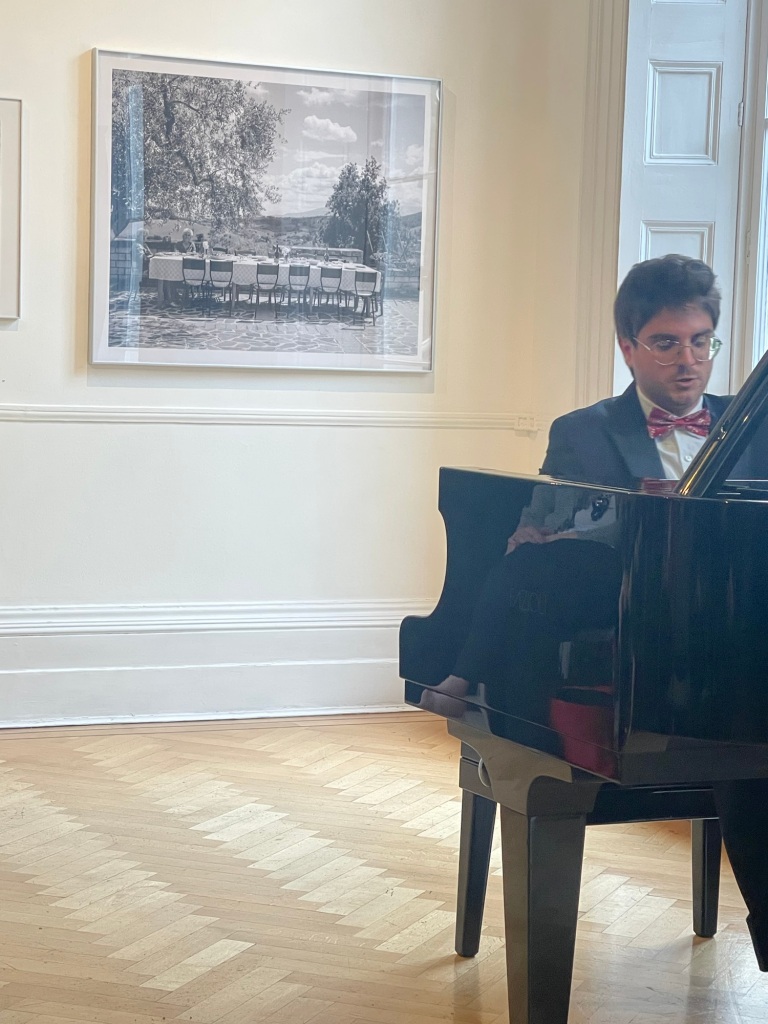
Both op 51 and op 31 were works very much associated with Artur Rubinstein.The aristocratic finesse he brought to the Impromptu I was reminded of in Antonio’s sensitive hands where he allowed the music to be played so simply with deep rooted sentiment but never sentimental.This beautiful instrument allowed him to chisel out the melody with sumptuous richness whether in the opening that was teasingly enticing or the rich tenor melody of the central episode.The Scherzo was played with considerable mastery and dynamic drive but also with beauty and character as this masterpiece was allowed to unravel leading to the excitement and exhilaration of the final few pages. Antonio receiving a just acknowledgment from the audience who were following his every move.
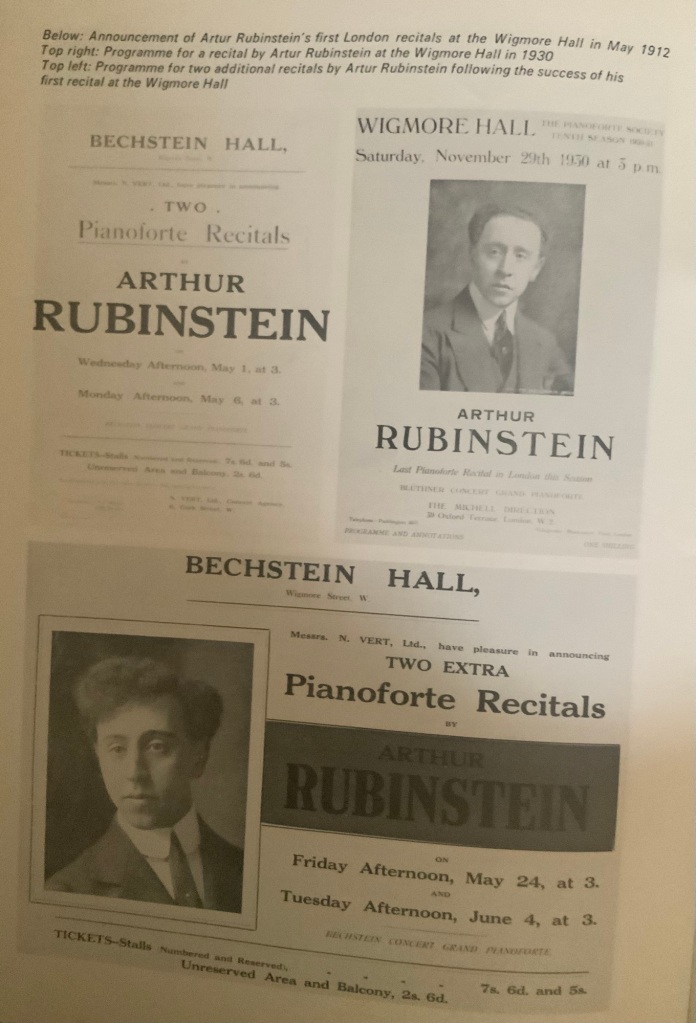
It was Rubinstein at the age of 90 at the end of his final concert at the Wigmore Hall where this work op 31 that he he had played all his life but his sight would no longer allow him to affront the final leaps to opposite ends of the keyboard. This great man had come out of retirement to give one last concert in a career that spanned almost a century in order to save the Wigmore Hall from the developers insensitive eyes. He stopped playing and declared he would play something else more in the center of the keyboard that he could still see perfectly.
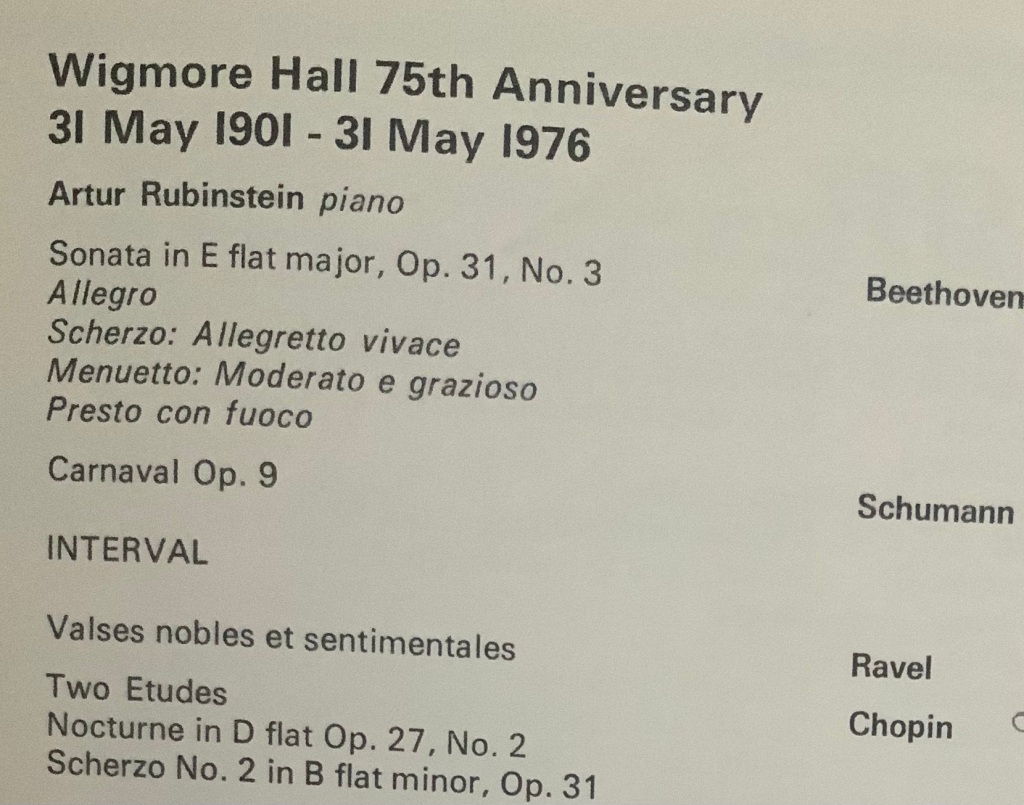
And the great man took our breath away as he always had but this time with some Chopin studies that we had never heard him play in public before ! At the end of the concert he made a speech saying that he had started his career in London here in 1901 and he was glad to finish it in this glorious hall in 1976 ,but please do not let them pull it down.William Lyne,the illuminated manager had had the idea to approach Rubinstein in a last effort to save the hall.The Wigmore since then has gone from strength to strength with William Lyne passing the direction in his retirement to his assistant John Gilhooly .
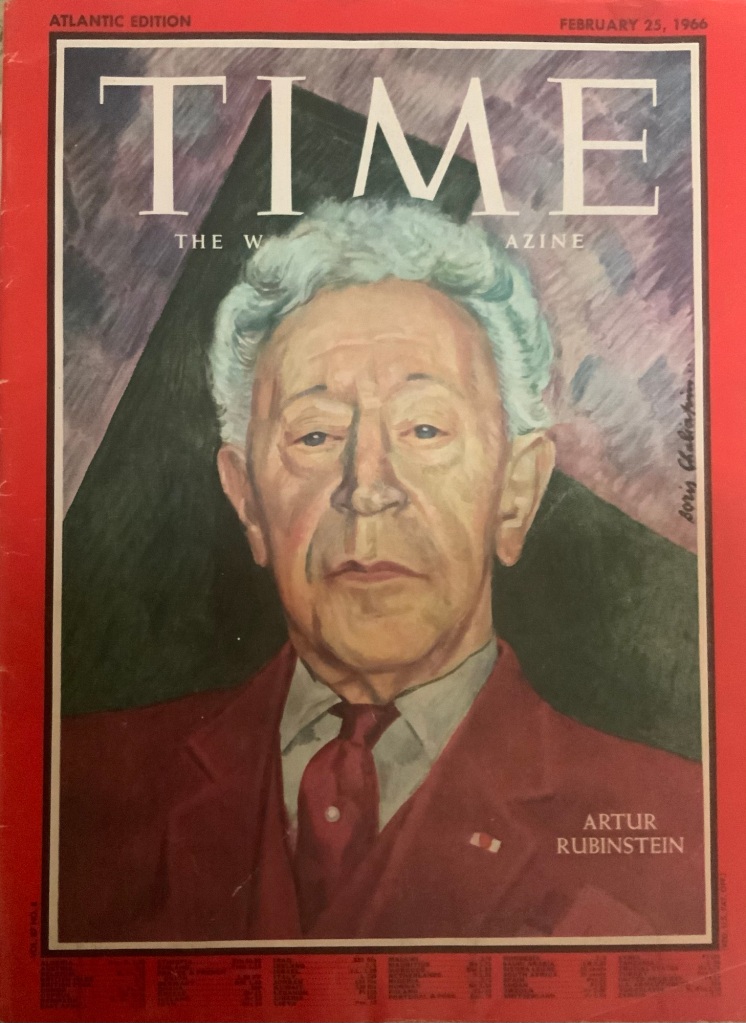
An interesting anecdote that I can also vouch for was when almost the entire audience was invited by the great man backstage.We were all gathered around him and suddenly Rubinstein was aware of a special presence next to him.‘I may be blind’ he quipped ‘but not too blind to know when an beautiful lady is standing next to me’. Lauren Bacall was charmed and totally captivated as most women had been all his long life!
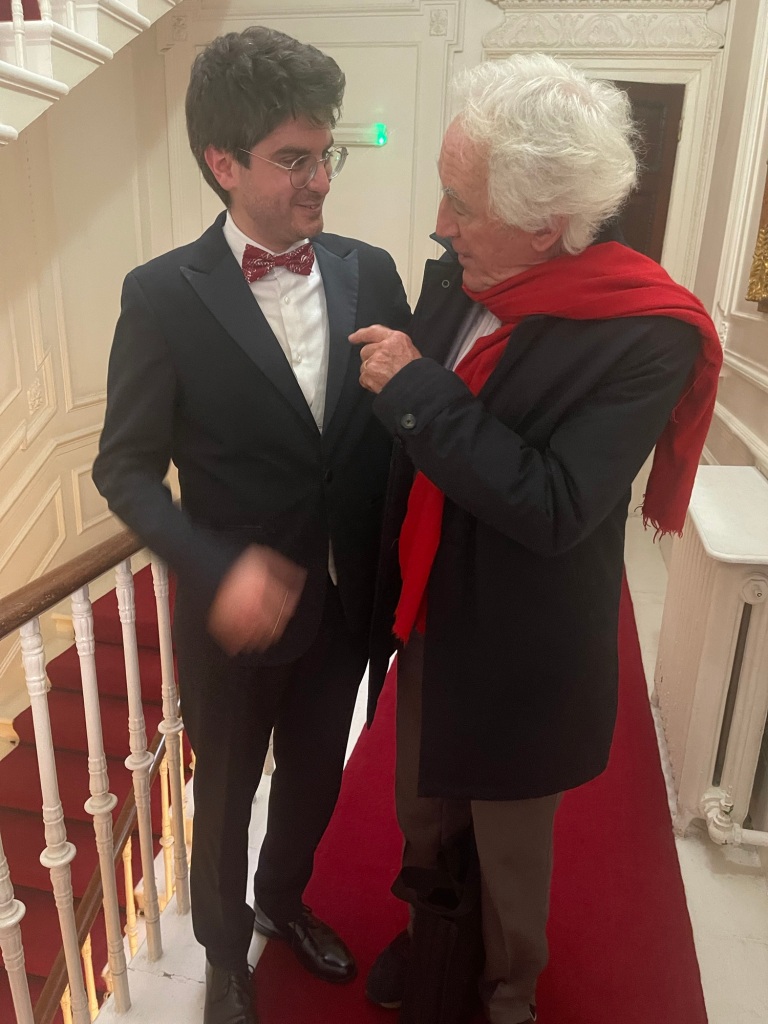
Antonio at this point too played 4 Chopin studies from op 25.The one Rubinstein had astonished us with was n 2 that Antonio also played with fleeting lightness and enticing phrasing. Antonio also included the famous ‘Aeolian’ harp of op 25 n. 1 which is described so grafically by Sir Charles Hallé of Chopin playing it in Manchester. Antonio showed us the same beautiful melodic line with the glistening accompaniment of changing harmonies.The other two studies were of transcendental difficulty and were n. 8 and n.10 for sixths and for octaves.As Schumann said of the Mazurkas they are too are ‘ canons covered in flowers’ and Antonio showed us the true musical meaning of these highly charged two studies.
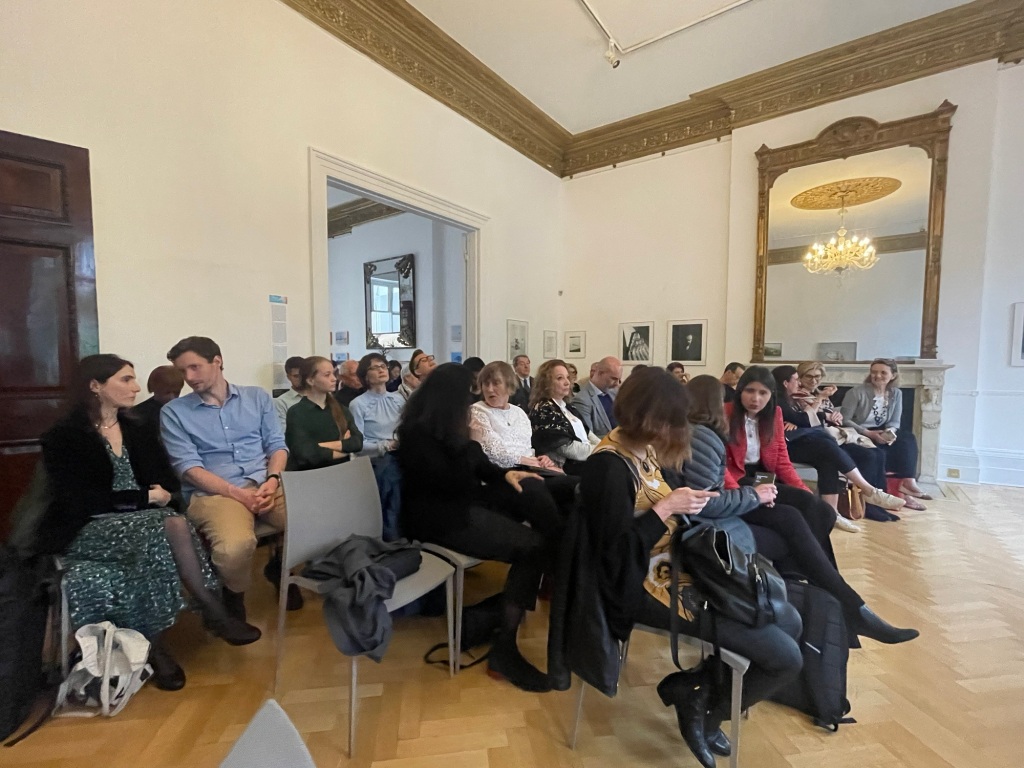
Ending his recital with the Andante Spianato and Grande Polonaise brillante op 22 which was one of the work that Chopin would have seduced his public with in the Parisian Salons of the day. Schumann famously wrote ‘Hats off Gentlemen ,a Genius’ on listening to Chopin playing his Rondo op 2 .It was the ravishing bel canto of ‘spianato’ contrasting with the brilliance and showmanship of one his most scintillating Polonaises that worked the same magic from Antonio’s well oiled fingers and soulfully poetic playing
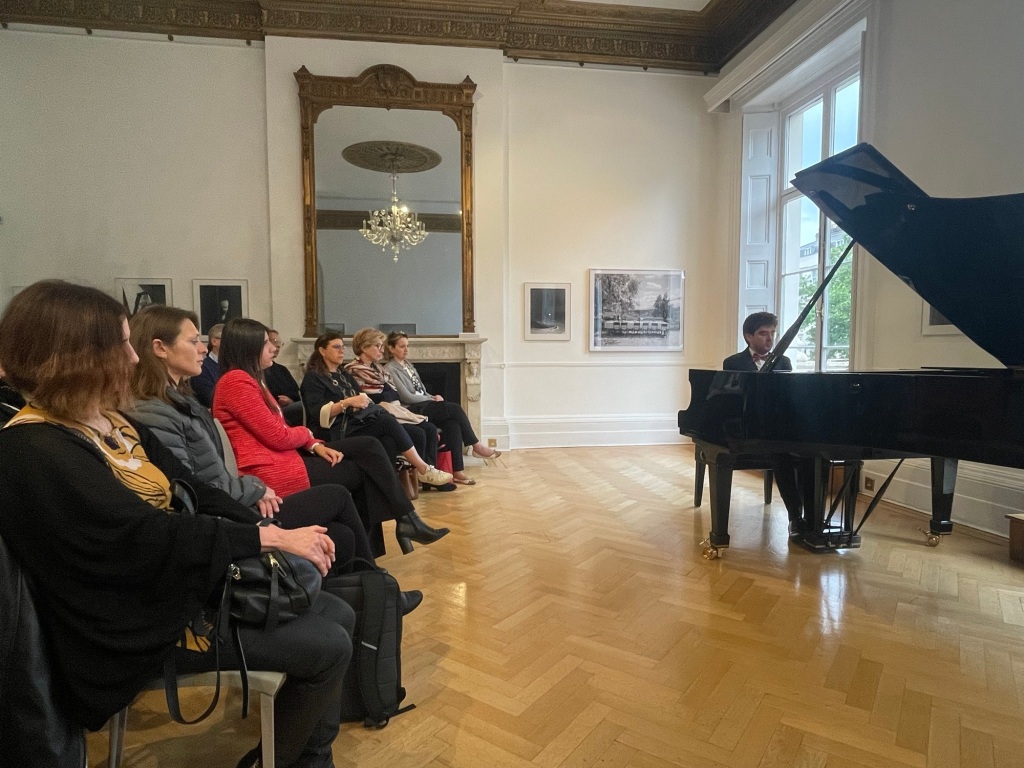
An ovation for this young man who as he said had first been greeted so kindly by the Institute on his arrival in London during the pandemic and was happy to repay their kindness now with this heartfelt recital by the true poet of the piano
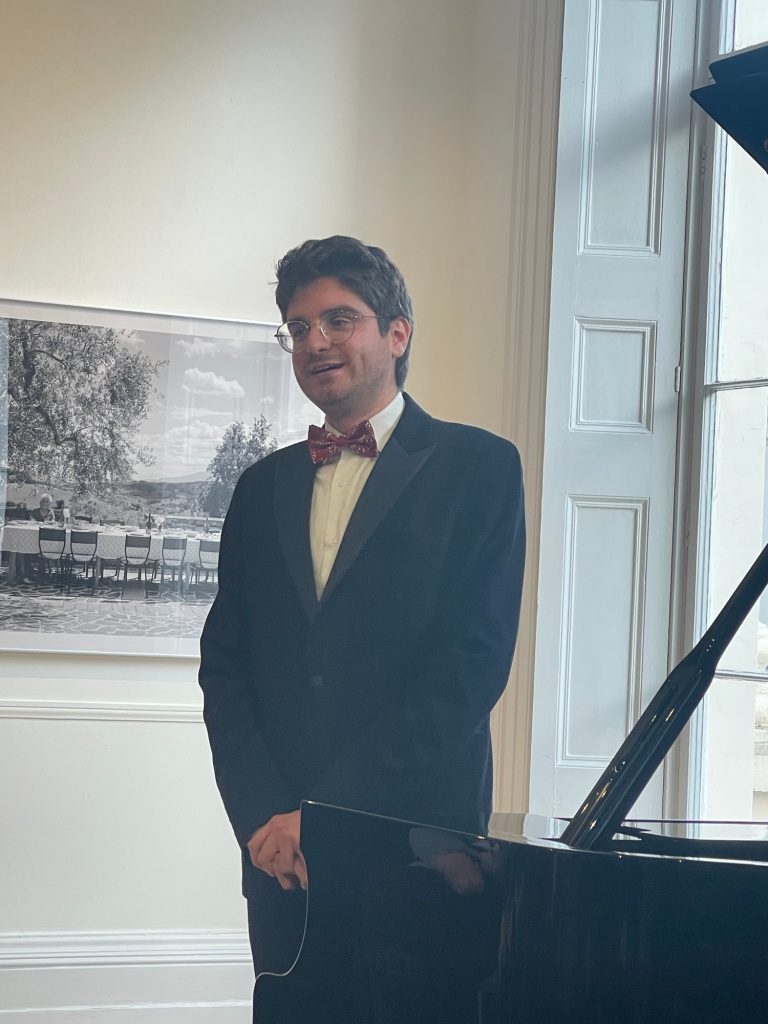
It was though the encore of Chopin’s much loved E flat nocturne op 9 n. 2 that stole our hearts, as this charming young man knew it would ,especially on this beautiful Fazioli piano so proudly installed in the sumptuous salon of the piano nobile of the institute
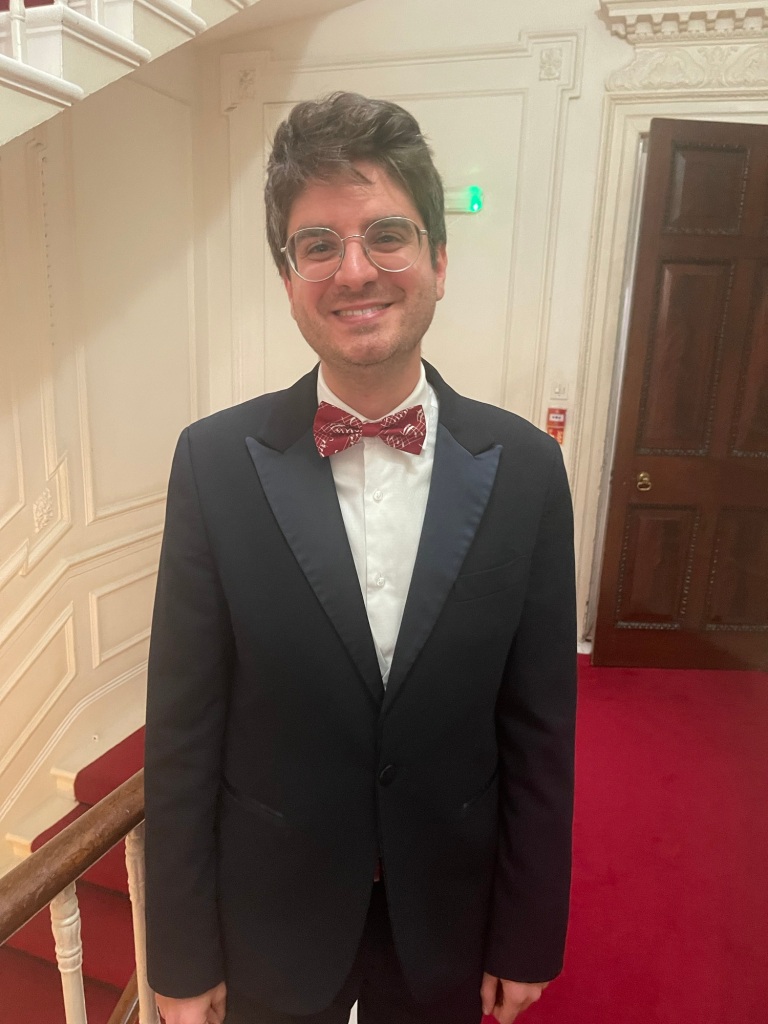
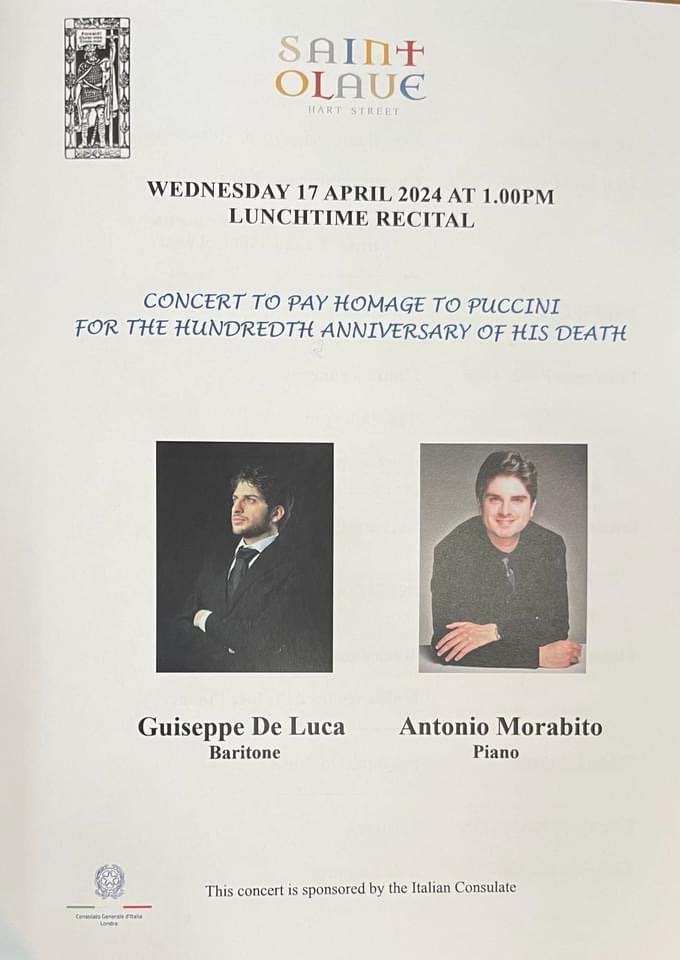
The wondrous vibrating tones of the sumptuous baritone voice of Giuseppe De Luca had as a heartbeat the beauty of Antonio Morabito’s sensitive accompaniment .
Three Chopin nocturnes added to give a rest to our valiant operatic hero showed off the exquisite artistry of the ever generous colleague from their student days together in Reggio Calabria deep in the south of Italy.
A standing ovation rarely if ever seen before in this ancient edifice was a way of showing how much a full house had been touched by the heart rending emotions of these two Italian artists .
Sponsored by the Italian Consulate it will be repeated in that beautiful candlelit church of St Mary Le Strand on the evening of the 24th April
Caro Chris, conosco Federica Nardacci da molti anni, da quando a Roma, non trovando chi dava spazio al suo talento, fu indotta a trasferirsi a Londra. Se la vedi salutamela. A presto
Il giorno gio 23 mag 2024 alle ore 10:59
"Mi piace""Mi piace"